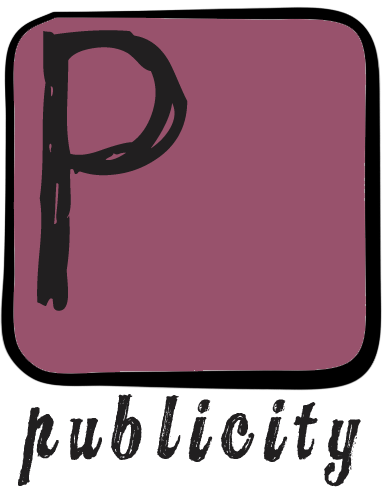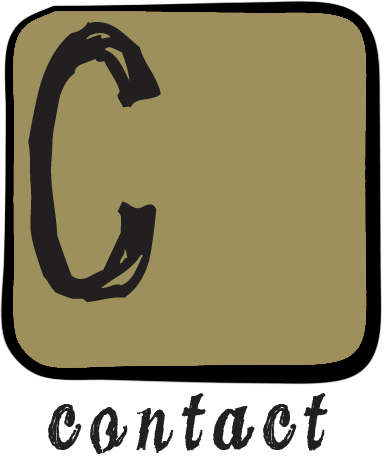When I very young, maybe ten years old, my fifth grade teacher told me I was a "born writer." I had completed an assignment on my favorite things. I wrote about the smell of coffee wafting from the Maxwell House Coffee factory as my grandmother and I approached San Francisco from the Oakland side of the Bay Bridge.
My proudest moment, though, was in eighth grade when my teacher took my paper from the stack of class autobiographies and compared my writing to that of Dickens. From then on, I believed I was, indeed, a "born writer."
Until, that is, I was eighteen and decided to write a story based on my latest tragic romantic adventure. What I wrote was flat, turgid, and boring, not to mention amateurish, awkward and embarrassingly self-indulgent. I tore up the piece and threw it in the nearest waste paper basket. Shortly afterward, I read Carson McCullers' stunning first novel, "The Heart I a Lonely Hunter" written when McCullers was no older than I was.
That cinched it: I was no writer after all. Some people had it, but I wasn't one of them. I would teach like all the other unfortunates who belonged in the category of "those who can't." I didn't write fiction again until I was forty.
I don't know why I started again exactly. Marilyn Monroe's story had come to fascinate me. Even more, I became curious about people who adore celebrities and follow their minutest doings. I found myself itching to write a piece of fiction that would explore how an ordinary person becomes consumed by the life of a celebrity.
But the reason doesn't matter. What's important is this: Being older helped my writing. For one thing, I wasn't so callow as I had been. For another, studying writers for years had improved my technique. The writing was just good enough that I kept at it.
That's when I discovered the most important lesson I've learned as a writer: Fiction writing is as much a set of skills as it is an art form. No way could I become a good writer until I learned the skills and techniques that move a story and its characters forward. And the only way to learn skills is to practice, practice, practice .
My first novel--the Marilyn Monroe material was in the form of a short story at that point--was autobiographical. I entitled it, "Smile for the Camera." I labored over it for a year. I asked my friends to read it. I sent it to an editor for feedback. I shouldn't have wasted their time. IT WAS AWFUL. But having spent so much time on it, I kept thinking it deserved to be published. Besides it was my personal odyssey and so it must be fascinating, right?
WRONG! It deserved to be just what it was--a practice piece.
I wrote two more novels that suffered the same fate: oblivion in a bottom drawer.
But here's the thing. I learned my craft by writing those three wretched novels. Those novels made me confront and solve technical problems, problems like how do you bring a story to life, how do you develop believable characters, what does realistic dialogue sound like, what creates dramatic tension, how do you transition smoothly from one character or one setting to another.
I'm certainly not suggesting that anyone can learn to be a writer. I read too many Freshman compositions in my day to believe that. While most people can learn to write clear, well-thought-out paragraphs if they practice, very few can learn to give us lively, interesting fiction. It takes a certain amount of talent to write that.
So talent is a factor, and an important one. And maybe some writers are so naturally gifted that literature pours out of them like a fountain. But most of us need to learn our craft and spend a certain amount of time as an apprentice.
I wish I'd known that when I was eighteen.
Thursday, July 26, 2012
Thursday, July 19, 2012
Book Blogger's Hop
I went to Book Blogger's Hop today. It's a really cool way to connect with other book bloggers and make friends. The site is hosted by Crazy for Books, a blog where Jennifer reviews books she's read and makes recommendations.
The question of the week on Book Blogger's Hop is: How long does it take you to read a book?
Simple question, right? My first impulse is to say a couple of days or so and then I'm on to the next. But not so fast. There are exceptions.
That's scratching the surface, of course, but it shows how reading speed depends on a lot of different things. Unless, that is, you're like my mother. She could speed-read everything. It never took her more than a day to read an entire book, even "War and Peace." She never took a course in speed reading either, it was just her natural rhythm. I've never known anyone else like that.
What about you? How long does it take you to read a book?
The question of the week on Book Blogger's Hop is: How long does it take you to read a book?
Simple question, right? My first impulse is to say a couple of days or so and then I'm on to the next. But not so fast. There are exceptions.
- What about books I fall in love with and want to live inside for as long as possible. Some of the great Victorian novels are like that. Jane Austen too. They create an alternative reality that I don't want to abandon. I slow myself down for these books.
- Other books bore me silly. This is the other side of the coin. I probably won't even finish these.
- Then there are the ones I feel a little embarrassed reading. The guilty pleasures. Some detective and mystery fiction falls into this category. I consume these like candy. (Sometimes they're just about as nutritious, but I don't care.)
- And of course there are the novels I read to study as well as enjoy--books written by authors I can learn from. I love these books, and I take my time with them. There are so many writers to admire. And sometimes, if I'm having a particular problem, I learn how a more experienced writer has tackled the same problem. I go to school on these books.
- Nonfiction books fascinate me depending on subject matter. I love biography and autobiography. I read these quickly to satisfy my curiosity about someone.
That's scratching the surface, of course, but it shows how reading speed depends on a lot of different things. Unless, that is, you're like my mother. She could speed-read everything. It never took her more than a day to read an entire book, even "War and Peace." She never took a course in speed reading either, it was just her natural rhythm. I've never known anyone else like that.
What about you? How long does it take you to read a book?
Sunday, July 15, 2012
Entering In
So this is me writing my first blog.
A little bit about who I think I am to enter an already crowded field of bloggers, many of whom have been at this for quite awhile and have a lot of good things to say.
I've been a writer for quite a few years, enough years to have accumulated some opinions about this difficult, often lonely, business of wrestling words into submission. But I don't live in a vacuum. None of us do. I need your feedback.
Here's what you can expect from me: In each blog, I will explore a topic. I will explain my thinking and how I got there. Sometimes I will offer tips and suggestions based on what has worked (or hasn't) for me as a writer. Sometimes I will talk about things that are going on in my life, when it helps explain my point-of-view. And I will ask you to weigh in with your thoughts, experiences, and opinions.
Right now I am writing a novel that has yet to acquire a title. I feel shy talking about it because one of the main characters is anything but admirable: he is a pimp. Every time someone asks me what I'm working on, I find myself mumbling the answer. Or changing the subject. Why is this? It's because I have heard for years--almost as many years as I have been writing--that my characters need to be likable. And by that people almost always mean good. Or admirable. Or at least redeemable. A pimp is none of those things.
Years ago I belonged to a critique group. In those days I wrote short stories and almost every week I would bring in a new one to read. The feedback was inevitably the same: "You must write about people we can care about." One woman said, "Why can't you write about nice people?"
Now, I don't know about you, but I find nice people awfully boring to write about. They're lovely to know, wonderful as neighbors, but it's difficult to find much in them to design a story around. What would Paradise Lost be without Satan? Flat. Dull. In fact, there would be no story at all.
Don't get me wrong: I don't write about the delicious dark males that populate romance novels. They aren't real villains. They are the stuff of fantasy. We love to hate them. In fact, maybe we just love them.
My characters--the ones that disturbed the critique group--tend to be products of real-world problems. Often they live in squalid surroundings, are poor, or have few of the resources we middle-class folks take for granted. Sometimes abuse has damaged their souls. Some of them, like my pimp, Plato, are even perpetrators.
But that doesn't mean that Plato and his fictional siblings are worthy of condemnation. Because, while their behavior is reprehensible, their characters are complex, their motives are mixed, and their minds are capable of change. Which is not to say that Plato will become a goody-two-shoes at the end of the novel, but only that he is a mixture of good and bad, admirable and despicable. The things he does, he does to survive. Just like most of us.
I don't know about you, but I think flawed characters are the only interesting characters. What do you think?
A little bit about who I think I am to enter an already crowded field of bloggers, many of whom have been at this for quite awhile and have a lot of good things to say.
I've been a writer for quite a few years, enough years to have accumulated some opinions about this difficult, often lonely, business of wrestling words into submission. But I don't live in a vacuum. None of us do. I need your feedback.
Here's what you can expect from me: In each blog, I will explore a topic. I will explain my thinking and how I got there. Sometimes I will offer tips and suggestions based on what has worked (or hasn't) for me as a writer. Sometimes I will talk about things that are going on in my life, when it helps explain my point-of-view. And I will ask you to weigh in with your thoughts, experiences, and opinions.
Right now I am writing a novel that has yet to acquire a title. I feel shy talking about it because one of the main characters is anything but admirable: he is a pimp. Every time someone asks me what I'm working on, I find myself mumbling the answer. Or changing the subject. Why is this? It's because I have heard for years--almost as many years as I have been writing--that my characters need to be likable. And by that people almost always mean good. Or admirable. Or at least redeemable. A pimp is none of those things.
Years ago I belonged to a critique group. In those days I wrote short stories and almost every week I would bring in a new one to read. The feedback was inevitably the same: "You must write about people we can care about." One woman said, "Why can't you write about nice people?"
Now, I don't know about you, but I find nice people awfully boring to write about. They're lovely to know, wonderful as neighbors, but it's difficult to find much in them to design a story around. What would Paradise Lost be without Satan? Flat. Dull. In fact, there would be no story at all.
Don't get me wrong: I don't write about the delicious dark males that populate romance novels. They aren't real villains. They are the stuff of fantasy. We love to hate them. In fact, maybe we just love them.
My characters--the ones that disturbed the critique group--tend to be products of real-world problems. Often they live in squalid surroundings, are poor, or have few of the resources we middle-class folks take for granted. Sometimes abuse has damaged their souls. Some of them, like my pimp, Plato, are even perpetrators.
But that doesn't mean that Plato and his fictional siblings are worthy of condemnation. Because, while their behavior is reprehensible, their characters are complex, their motives are mixed, and their minds are capable of change. Which is not to say that Plato will become a goody-two-shoes at the end of the novel, but only that he is a mixture of good and bad, admirable and despicable. The things he does, he does to survive. Just like most of us.
I don't know about you, but I think flawed characters are the only interesting characters. What do you think?
Subscribe to:
Posts (Atom)






